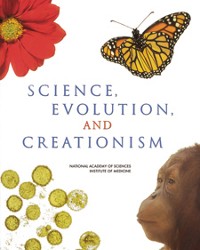Advertisement
Grab your lab coat. Let's get started
Welcome!
Welcome!
Create an account below to get 6 C&EN articles per month, receive newsletters and more - all free.
It seems this is your first time logging in online. Please enter the following information to continue.
As an ACS member you automatically get access to this site. All we need is few more details to create your reading experience.
Not you? Sign in with a different account.
Not you? Sign in with a different account.
ERROR 1
ERROR 1
ERROR 2
ERROR 2
ERROR 2
ERROR 2
ERROR 2
Password and Confirm password must match.
If you have an ACS member number, please enter it here so we can link this account to your membership. (optional)
ERROR 2
ACS values your privacy. By submitting your information, you are gaining access to C&EN and subscribing to our weekly newsletter. We use the information you provide to make your reading experience better, and we will never sell your data to third party members.
Policy
Evolution And Creationism In The Classroom
March 10, 2008
| A version of this story appeared in
Volume 86, Issue 10
Regarding the article "Evolution Yes, Creationism No," I would like to offer a few points for consideration (C&EN, Jan. 21, page 44). First, I think most would agree that the scientific community is not monolithic, which is to say that the disciplines of chemistry, psychology, medicine, and evolutionary biology are in a sense distinct subcultures of the scientific endeavor with distinct philosophical underpinnings. Thus, I don't believe there is a reason to conclude, as Bruce Alberts did, " 'that a president who didn't believe in evolution arguments wouldn't believe' that smoking is bad for health." None of the presidential candidates have said they don't believe in the scientific disciplines in general. The reality, I believe, is that different groups of people have different conceptions of the various scientific disciplines and their levels of correctness and credibility.
I also believe it would be to the advantage of the scientific community if elements of it did not push too hard because they will likely be seen as intrusive elites seeking to micromanage the curricula of local schools. I think people rightly expect to teach their children as they see fit.
My final point is that scientists should not forget that the pursuit of science is a philosophy. Statements in the article such as "There's even the opportunity if schools so decide ... to discuss these [creationism, intelligent design] as matters of political science or history or philosophy or the history of ideas and religions," and "We are very keen that people understand the nature of science and the scientific method, which is not about accepting on faith a statement"deny the fact that the scientific method itself makes certain foundational assumptions and that interpretations of scientific data can and do change over time, sometimes radically, as any student of the history and philosophy of science knows. New data and interpretations always have the possibility of changing conclusions.
Jon Ball
Crystal Lake, Ill.
Unlike some sources quoted in this article, I see no problem with the study of both intelligent design and evolution in a science curriculum for public schools. Theories are not scientific on their own merits. Rather, they are conclusions based on information collected by scientific methods. It is not uncommon to find more than one conclusion based on the same set of data.
There is no question that religion cannot be taught in a scientific setting, but intelligent design raises valid questions about the origins of life. Consider the Search for Extra-Terrestrial Intelligence (SETI) project. If we received a signal from space containing a sequence of information similar to the nucleotide sequence found in DNA, would it not be reported as data from an intelligent life-form?
The scientific community should not suppress controversial theories in a heavy-handed manner. Controversy sparks interest, and we want students to take more interest in science.
Michael E. Alexander
Hicksville, Ohio



Join the conversation
Contact the reporter
Submit a Letter to the Editor for publication
Engage with us on Twitter